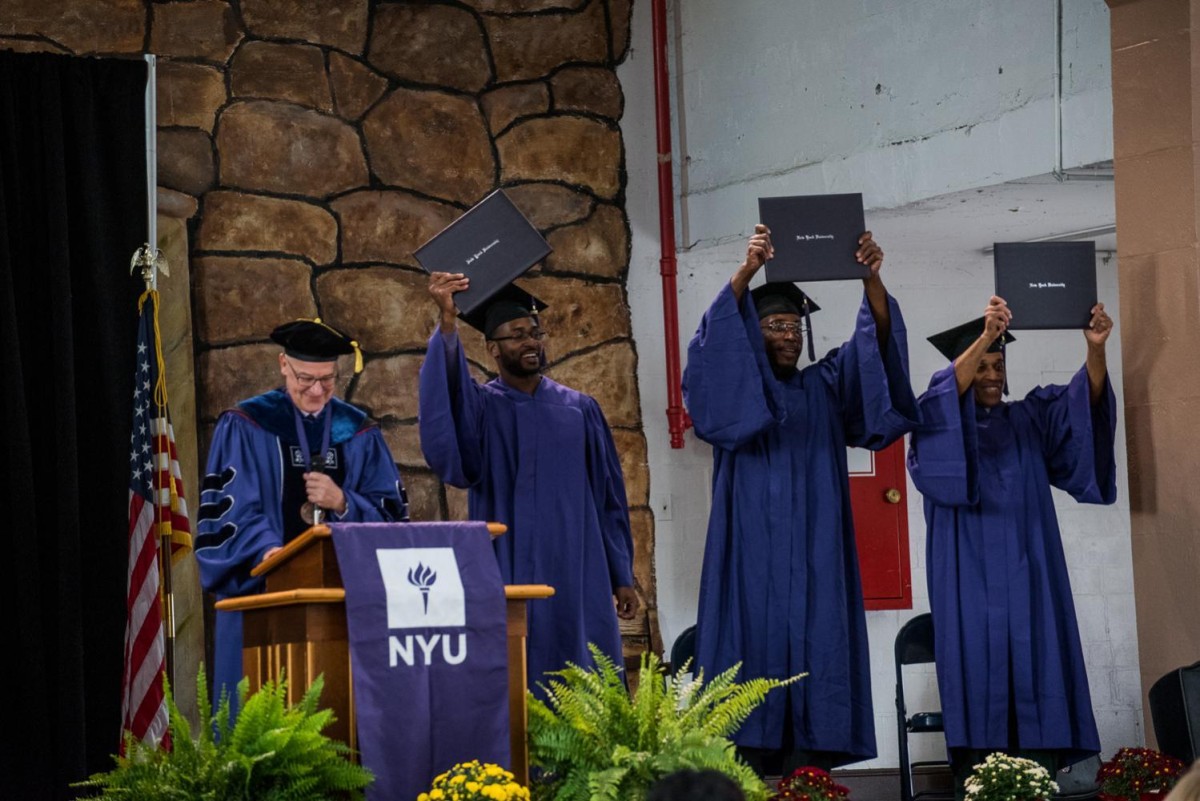Every semester since 2015, 50 to 60 incarcerated people at the Wallkill Correctional Facility in upstate New York have enrolled in college courses through NYU’s Prison Education Program, which helps them work toward an associate degree in Liberal Studies from the university. Last month, university president Linda Mills announced that students in the program will also be able to earn bachelor’s degrees.
Associate Director Dylan Brown said more than 35 students have earned associate degrees and over 300 incarcerated people have earned college credit through the program in an interview with WSN. After graduating from the program, students can apply to transfer to other universities, including NYU’s Washington Square campus, where students get a full tuition scholarship and living stipend, including food and housing.
Zachary Gillespie, who graduated from the program in 2019, was one of four students working at its Research Lab, where faculty and students examine the relationship between debt and incarceration in New York to create policy recommendations. Gillespie is currently pursuing his master’s degree in Africana Studies at NYU after earning his bachelor’s degree in American Studies from the university this past May.
“Things that were implemented from the program helped me better find my place within the university,” Gillespie said. “The program implemented a research component in which we would collaborate with faculty on ethnographic research and we co-authored papers and presented our research. The research component associated with PEP is really cool because that helped me even make the determination that I wanted to go to grad school.”
Brown said students in the program who transfer to NYU receive tutoring, mentorship and professional development support. The program also provides housing, personal wellness and relationship support through its Bridge Program, which is intended to provide support after incarceration.
“One of the things we’ve really been intentional about since our program first started is that we need to also support students once they’re home as well as providing pathways for continuing their education,” Brown said. “That’s actually one of the things in the larger field of higher education and in prison that makes our program fairly distinct.”
To be selected for the program, prospective students must first attend a meeting that provides them with information, and also discuss an assigned reading with administrators during an interview. Brown said students are selected based on the interest and excitement they demonstrate in the coursework, as well as the amount of time they would be able to commit to the program.
Brown said many students who are enrolled have expressed interest in continuing their education after completing the program and earning their bachelor’s degree, which he says will now be more accessible to them.
“What I find myself reflecting on is really the transformative power of education,” Brown said. “This program is really important because it’s also an opportunity for students to reclaim the right to education and access to high-quality education.”
Contact Aashna Miharia and Dharma Niles at [email protected].


























































































































































